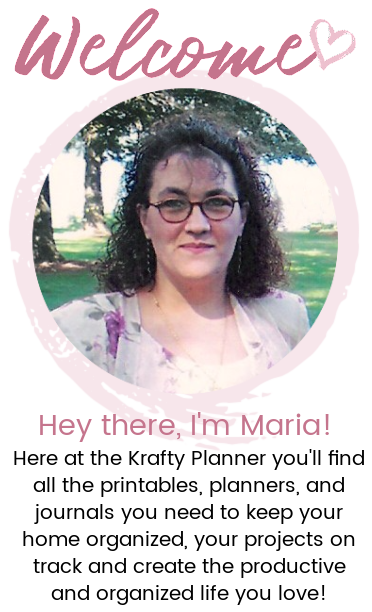Why Awareness Matters: Know the Signs to Protect Your Peace
There’s a quiet kind of strength in paying attention. Whether it’s a lingering sense of discomfort after a conversation or a moment that felt off but was hard to explain, our inner cues often notice what the mind isn’t ready to process. Learning to recognize those signs—not just in others but in our own emotional responses—is a powerful step toward protecting our peace.
When the people we trust most cross boundaries, the impact can reach far beyond the moment. It can shake our confidence, blur our intuition, and leave us questioning what’s real. But with time, space, and gentle intention, we can begin to reclaim that clarity.
Awareness isn't rooted in fear. It’s rooted in care for ourselves, for our space, and for the quiet voice inside us that always knew.
The Subtle Signs of Professional Overstep
Not every violation of trust comes with obvious warning bells. In many cases, boundary-crossing begins in ways that feel confusing rather than alarming.
A professional might offer personal compliments that seem too intimate for the setting. They may share overly personal stories or create a dynamic that feels more emotional than appropriate.
These blurred lines—where the roles of helper and helped start to feel imbalanced—often signal something is off.
The context makes these moments especially difficult to identify. When someone holds authority or wears a badge of credibility, we’re more likely to second-guess ourselves.
We rationalize, justify, or suppress discomfort instead of listening to it. That’s why it’s so important to stay connected to your inner signals, even if you can’t immediately explain why something feels wrong.
Pay attention to how you feel before, during, and after interactions. If you often leave a conversation feeling anxious, confused, or drained, it’s worth exploring those responses. Discomfort is information. You don’t need evidence to trust your instincts.
Real-World Awareness: Why It Matters
When stories of professional misconduct come to light, they often carry a dual weight: grief for those affected and validation for others who have felt something similar but stayed silent. Cases like the David Farley sexual misconduct claims remind us that these breaches of trust are not imagined. They happen, they’re serious, and they deserve attention.
Reading about incidents involving respected professionals can stir up a range of emotions—shock, anger, empathy, even a sense of recognition. That recognition matters. It helps break the silence around experiences that are often minimized or dismissed. It can also serve as a turning point, when the invisible becomes seen and doubt gives way to clarity.
Staying aware of these cases isn’t about collecting cautionary tales. It’s about understanding the reality some people face and using that knowledge to strengthen your boundaries and sense of safety. Awareness can transform isolated discomfort into a broader perspective—one that affirms your right to peace, respect, and protection.
Tools to Protect Your Peace: Journaling and Planning
When your sense of safety feels shaken, even small actions can bring grounding. Journaling is one of the simplest ways to reconnect with yourself. It doesn’t have to be structured or polished—just honest.
Writing down how you feel after a conversation, a meeting, or even a passing comment can help you spot emotional patterns over time. What feels heavy? What lingers in your thoughts longer than it should? These reflections can bring clarity when words fail in the moment.
Planning tools offer another layer of support. Using your planner to track emotional energy or interactions can create a visual map of how certain situations affect you.
You might jot down keywords for how you felt each day or note recurring discomfort tied to specific people or environments. These aren’t just notes—they’re reminders that your experiences are real and worth acknowledging.
Both practices allow you to create space with your thoughts. That space becomes a boundary, a place where you hear your feelings first. And that is a deeply protective act.
Turning Knowledge Into Empowerment
Awareness is a beginning, and what follows can be just as meaningful. When you start recognizing the signals—both around you and within—you open the door to choice.
You can choose to speak up, seek support, or set firmer boundaries. You don’t have to make a statement for a decision to matter. Choosing to spend less time with someone or to trust your gut can be a quiet yet meaningful way to honor yourself.
For some, empowerment may include seeking accountability. For others, it might mean healing quietly, restoring trust in themselves, or rebuilding daily rhythms that offer peace. There’s no single way to respond. What matters is that your response is your own.
You are not responsible for someone else’s disregard. You’re allowed to listen to your discomfort, believe your inner voice, and take steps that keep you safe and whole.
Resources for Support
If you've experienced a situation that left you feeling uneasy or violated, you're not alone, and you’re not without options. Whether you’re unsure about what happened or struggling to put it into words, support is available.
Organizations like RAINN offer guidance on identifying warning signs of abuse or misconduct, along with confidential resources. Their work exists to help people feel seen, believed, and protected.
You might also consider speaking with a trauma-informed therapist, particularly someone who understands the dynamics of professional misconduct. A counselor can help you process your experience in a way that respects your pace and your needs.
Support doesn’t need to come all at once. It can begin with one conversation, one page in your journal, or one clear acknowledgment that what you felt was real.
Conclusion: Awareness as Self-Care
Paying attention to how people make you feel is not overthinking. It’s care. It’s choosing to honor your instincts, even when they whisper instead of shout. When you recognize discomfort and allow yourself to explore it without judgment, you begin to reclaim the space that was always yours.
One of the kindest things you can do is to stay close to what feels right. That connection grows when you make time for rest and reflection, hold your boundaries, and embrace the practice of unapologetically prioritizing personal well-being. Awareness may not always be easy, but it is steady. It helps you move through the world with intention and protect the peace you've worked so intentionally to create.
BEFORE YOU GO:
Here are a few more posts you might like:
See my Link Party Directory for a current list of blog parties I attend each week.
FOR PERSONAL USE ONLY – Please Read Freebies Terms of Use.
(This post may contain affiliate links. For more information, see my disclosures here.)
~ SHARE THIS POST ~
Did you like this post? Do you know someone else who might enjoy it? Please take a minute to share it on Pinterest, Facebook, or your favorite social media… Thank you!






















